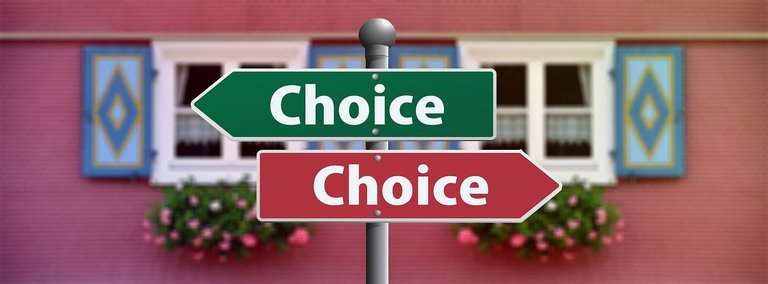You've earned the money to buy a house, and you have two options. The first is a big, beautiful house, but one whose best years are behind it. It needs a lot of repairs and remodeling, and therefore its price is low. The second option is a small house. It's not as beautiful as the previous one, but you don't have to invest time or money in repairs so its price is much higher than the previous one. What do you choose? Are you on the "repair to my liking" team or the "buy everything ready and fast" team?
Hello #ladiesofhive, how are you doing? Trust fine. I welcome you back to my blog. I am happy to participate in this week's prompt and present my write-up to you. I am looking forward to your feedback in the comment section.

Source from Pixabay
A proverb says that “he who buys what he does not need steals from himself/herself”. You know, buying a house is one of the lifetime investments, especially when it comes from hard-earned resources saved over decades of working.
I am careful when it comes to investment. This is because I have learned from people's mistakes and would not want to repeat that same mistake.
Now, to the prompt for this week: buying a house with options of renovating a beautiful, spacious old house or an already-made small house. First, I will perform my SWOT analysis on the two options. I would also ask my Ys and then begin to cross my Ts and dot my Is after the SWOT analysis is done to make my final decision.
So, I will start with the S=strength, compare the prices to confirm which one suits my personality and matches my budget, the durability, the available spaces, the neighbourhood, etc.
Proceed with W=weaknesses: what are the weaknesses of the facilities, the history of the property, is it under any legal tussle, or has it had that kind of history before? Does it come with complete documents, which will include the area master plan?
I will continue with the O = Opportunities: what opportunities exist around the facilities? Is the location troublesome, like a ghetto area or reserved quarters like an estate? Does it have proximity to places of interest, just like the hubs? What about the long-term opportunity of reselling the building after it appreciates?
Furthermore, I will assess the T= threats: is it prone to any natural disaster, including flooding, hurricanes, earthquakes, etc.?

Source from Pixabay
After the SWOT analysis, which is a tool to assist me with an in-depth analysis to make my choice between the two facilities beyond the details presented. The outcome below will be my action plan and decision.
I would choose to apply a touch of my personality by redesigning the old house and adding the things I need. This includes a smart coffee café, a compact dining table, and a Gym room, etc. Doing this will give me the leverage to monitor expenses and the quality of work done, though it might require extra work from me.
On the contrary, the small house, which I am not meant to spend much on, might have some quality issues, although it may save me the time and stress of redesigning. Again, its price may also strain my account because I would need to equip the facility after purchasing it. While the big old house will give me the leverage to reserve some funds for equipping it, the small, pricey house cost will shoot up with the addition of the cost of equipping it. There is a popular Igbo adage that says, “a man is known by his worth and his deeds speak for him”.
On this note, I will choose the big old house, patiently redesign it to my taste, and move in. Remember, the proverb “he who buys what he does not need steals from himself/herself”. I would not steal from myself; instead, I would like to buy what will give me peace of mind and satisfaction.
Thank you for reading. I would love to keep a date with you.
You can join from Here





